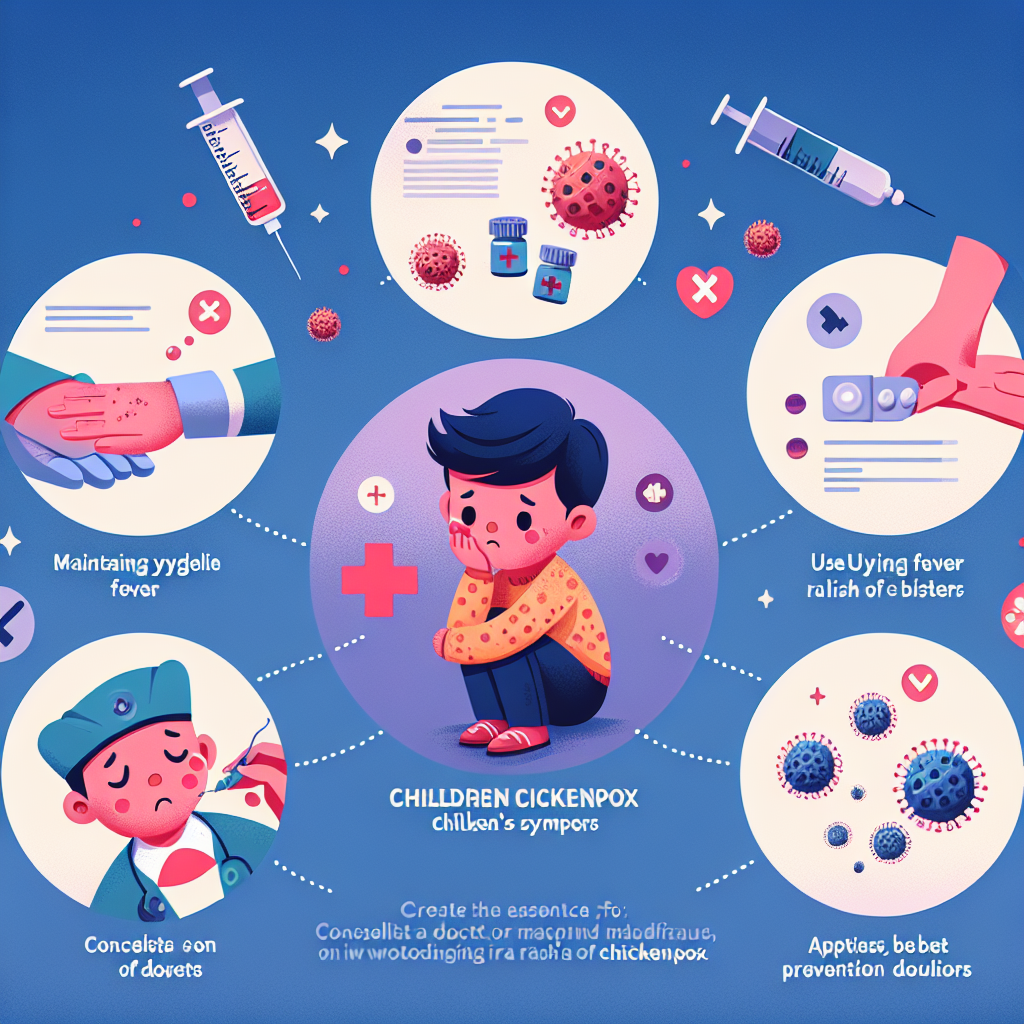What to Do When Chickenpox Appears in Children: Practical Advice
Raising a child comes with many joys, but also challenges, one of which is managing various childhood conditions. Chickenpox is one of the diseases that most parents deal with at some point, so it is essential that we understand how to act effectively when our little ones face this challenge.
Motor Development
Chickenpox, also known as chickenpox, is an infection caused by the varicella-zoster virus, which manifests itself as itchy pustules on the skin. Although it is more common in children, chicken pox can affect people of any age. It is important to know that the child's motor development can be affected during the illness, because severe itching can make the child more agitated and have difficulty sleeping, which can affect his ability to concentrate and move.
A child with chickenpox should avoid vigorous physical activity and rest as much as possible. It is recommended to make him a regular sleep schedule and ensure a calm environment, without stimuli that could accentuate his discomfort.
Language development
A less discussed aspect when it comes to chickenpox is the impact it can have on language development. Pain and discomfort can make the child less willing to communicate. In addition, if lesions occur in the mouth area, he may have difficulty in articulating words.
To ensure that language development is not slowed down, encourage your child to talk to you about how he feels and about the things he enjoys. Reading together, stories and songs can be helpful during this time.
First Aid Measures in Case of Chicken Pox
When chickenpox strikes, it's essential to know how to react to keep your child as comfortable as possible and prevent the virus from spreading.
- First, make sure you give him a doctor-recommended antipyretic, such as paracetamol, to manage the fever. Avoid taking aspirin as it can lead to serious complications.
- To relieve itching, baths in lukewarm water with colloidal oatmeal or baking soda added can be helpful.
- Hydration is vital, so encourage fluids, especially water.
- Use calamine lotions or moisturizers on your skin to reduce itching.
- Cut nails short to prevent scratching and secondary infections.
- It is also important to maintain a rigorous cleanliness, frequently changing bed linen and underwear.
Recommended Diet
Nutrition plays a crucial role during any healing process, and chicken pox is no exception.
- Give your child a diet rich in fresh fruits and vegetables to strengthen their immune system.
- Foods that are easy to swallow, such as soups and purees, are recommended if there are lesions in the mouth area.
- Avoid spicy or salty foods that can irritate the lesions or skin.
- It is also advisable to avoid sweets and processed snacks that can cause inflammation.
Importance of Medical Consultation
Remember to always consult a medical professional when you suspect your child has chicken pox. The pediatrician will be able to make a correct diagnosis and recommend the best course of treatment for your little one.
Monitor symptoms and, if complications such as breathing difficulties, vomiting, high fever or infectious lesions occur, contact an emergency service immediately.
Prevention of the Spread of Chickenpox
Chickenpox is highly contagious, so it is essential to keep your child at home and isolate them as much as possible to prevent the spread of the disease.
- Make sure family and close contacts are aware and have been vaccinated if appropriate.
- Teach your child to cover their mouth when they cough or sneeze and to wash their hands frequently.
- Disinfect the surfaces with which the child comes into regular contact.
Conclusion
Chickenpox can be an unpleasant experience for both the child and the parents. Therefore, it is important to be informed and prepared to deal with this condition calmly and effectively. Remember to pay attention to your child's emotional needs, maintain rigorous hygiene, follow your doctor's directions, and learn about ways to prevent the spread of disease. With proper care and attention, chicken pox will be just a short-lived memory in your childhood journey.














































































































































